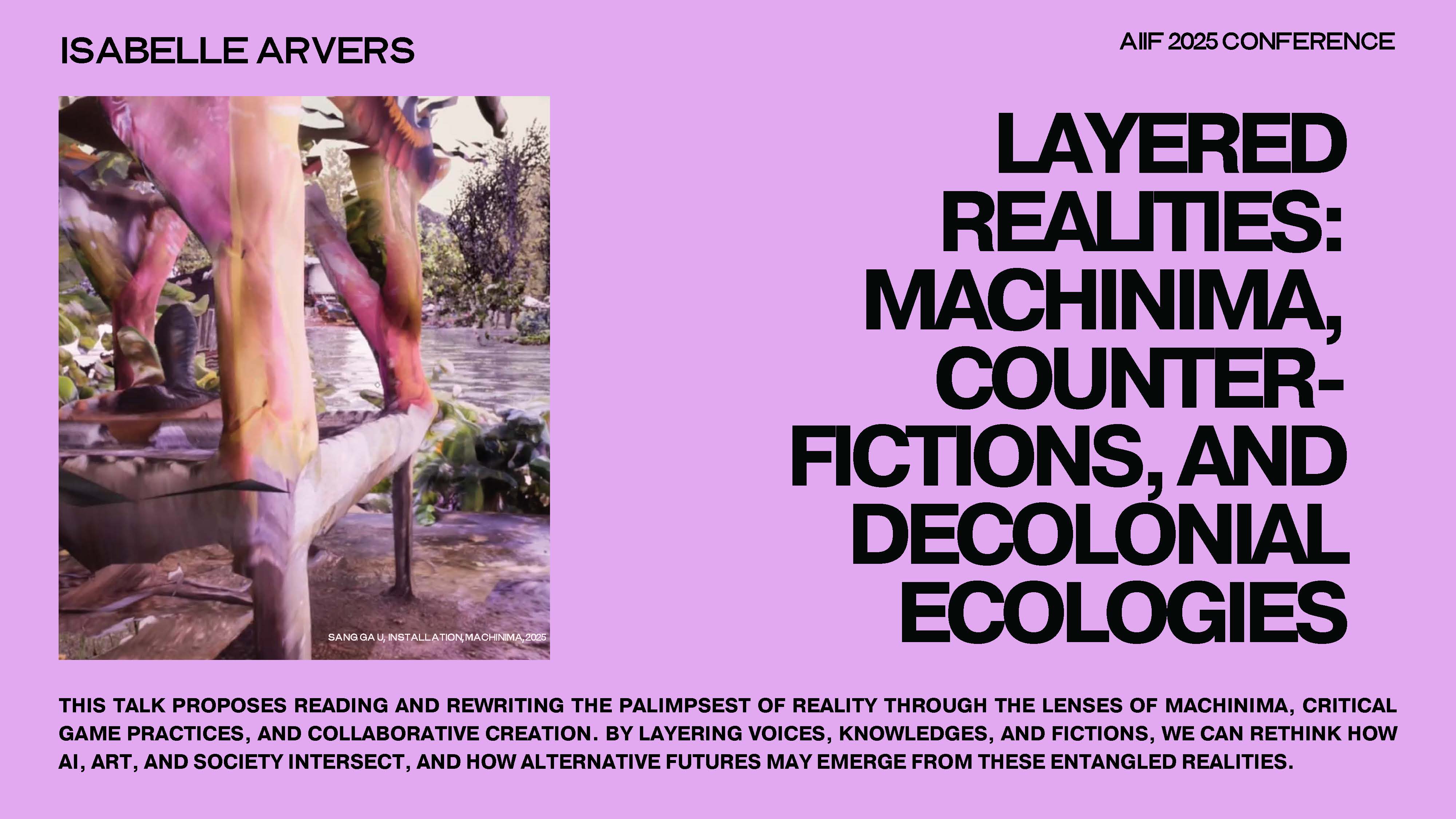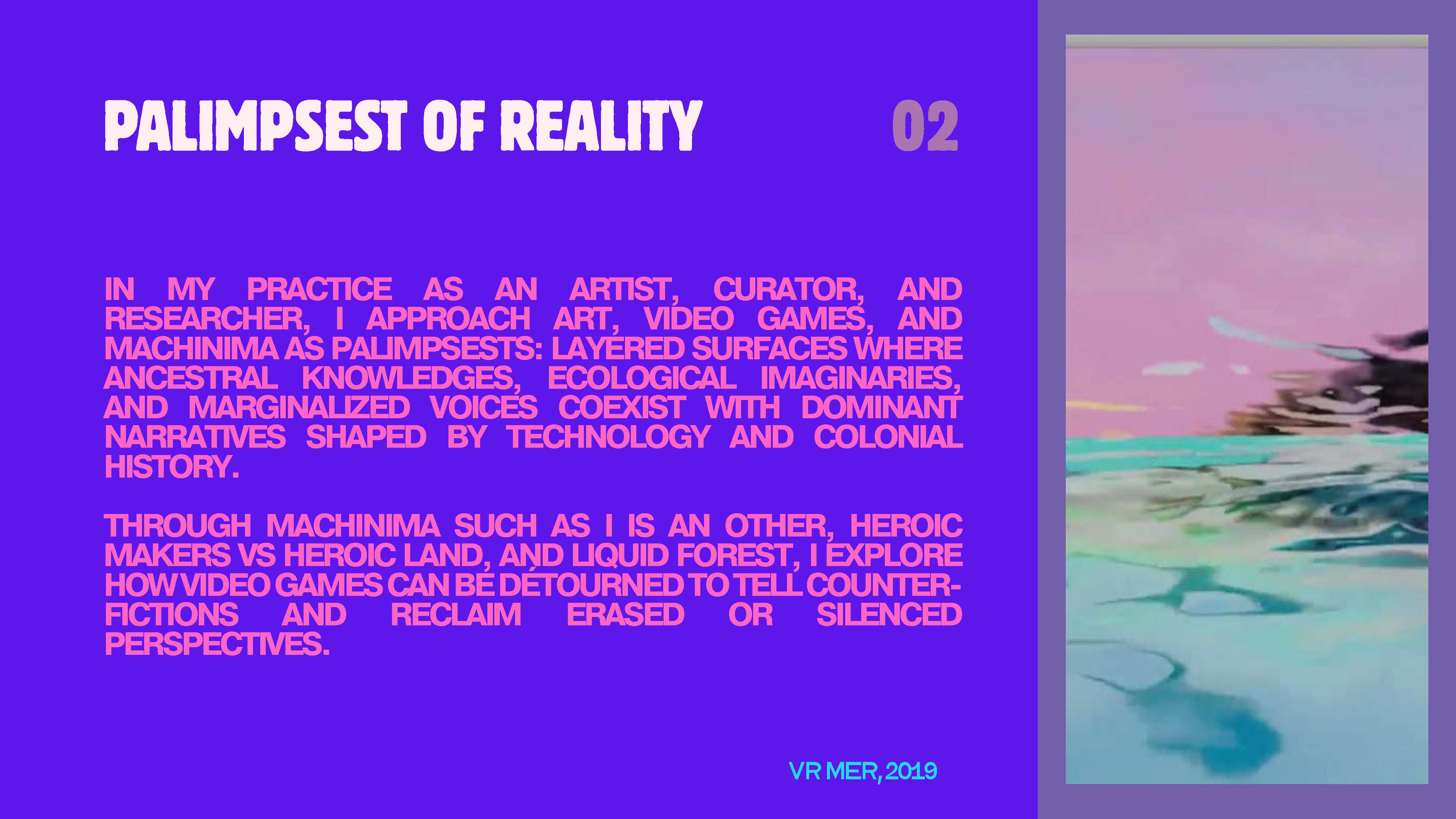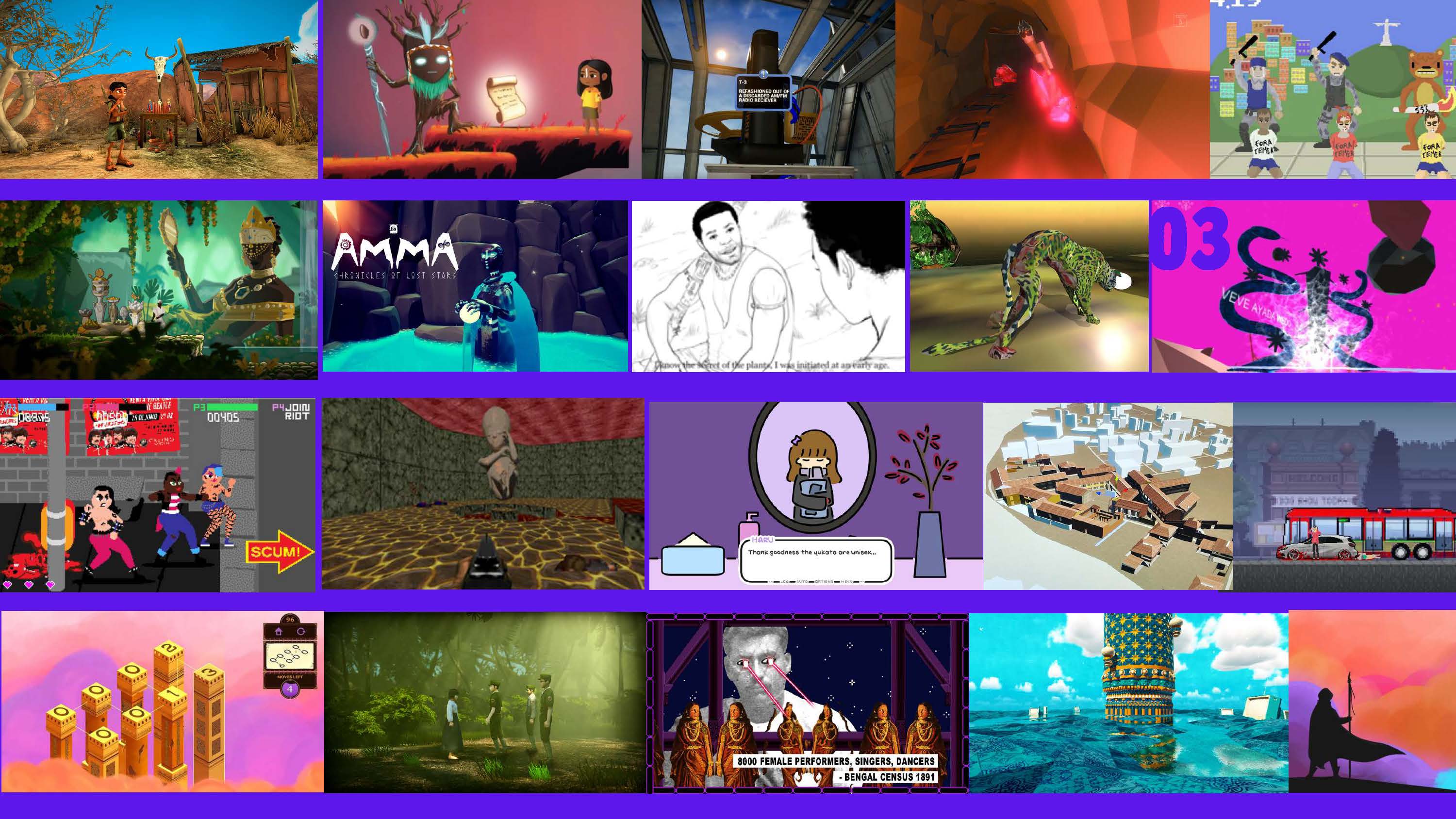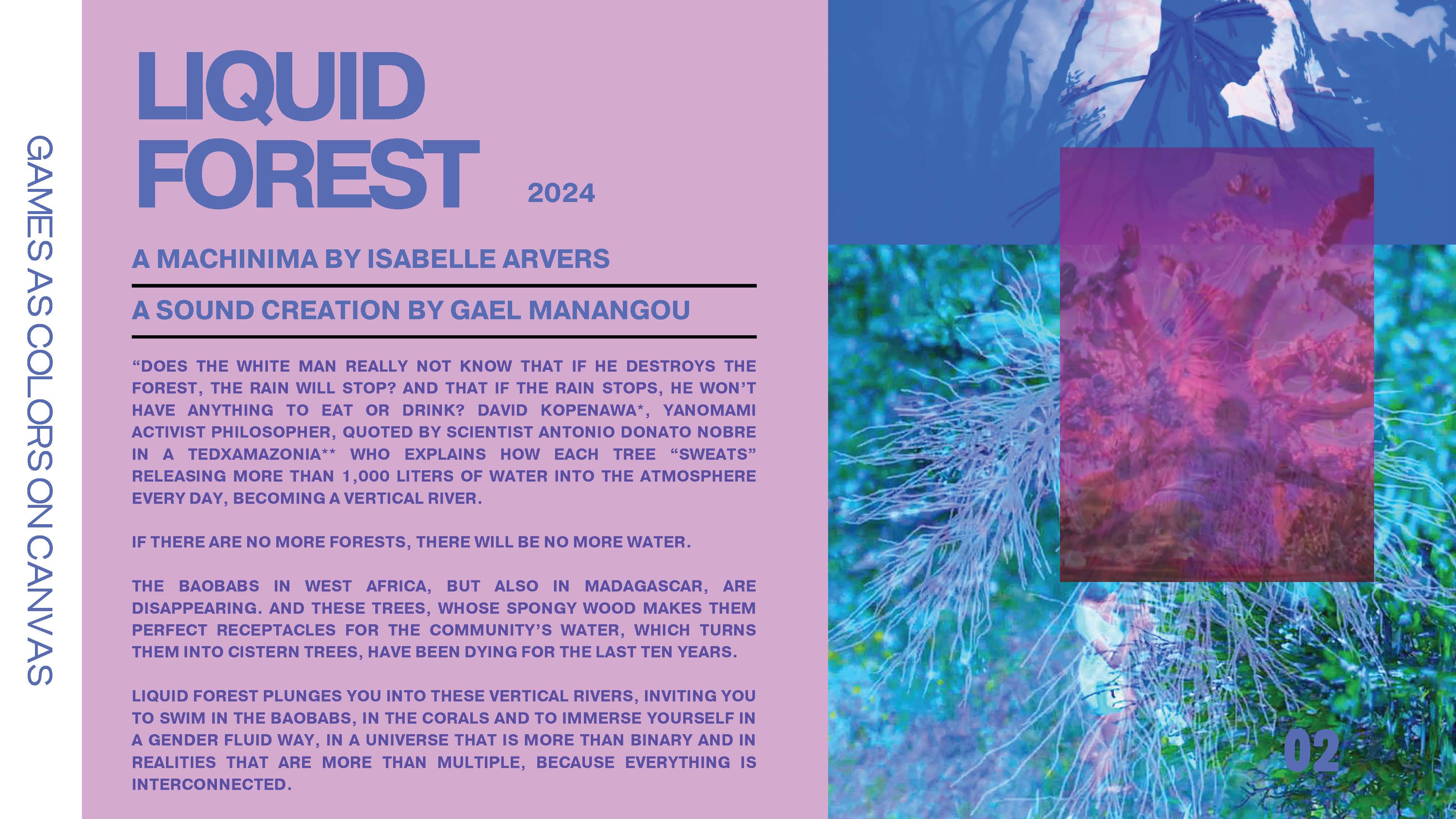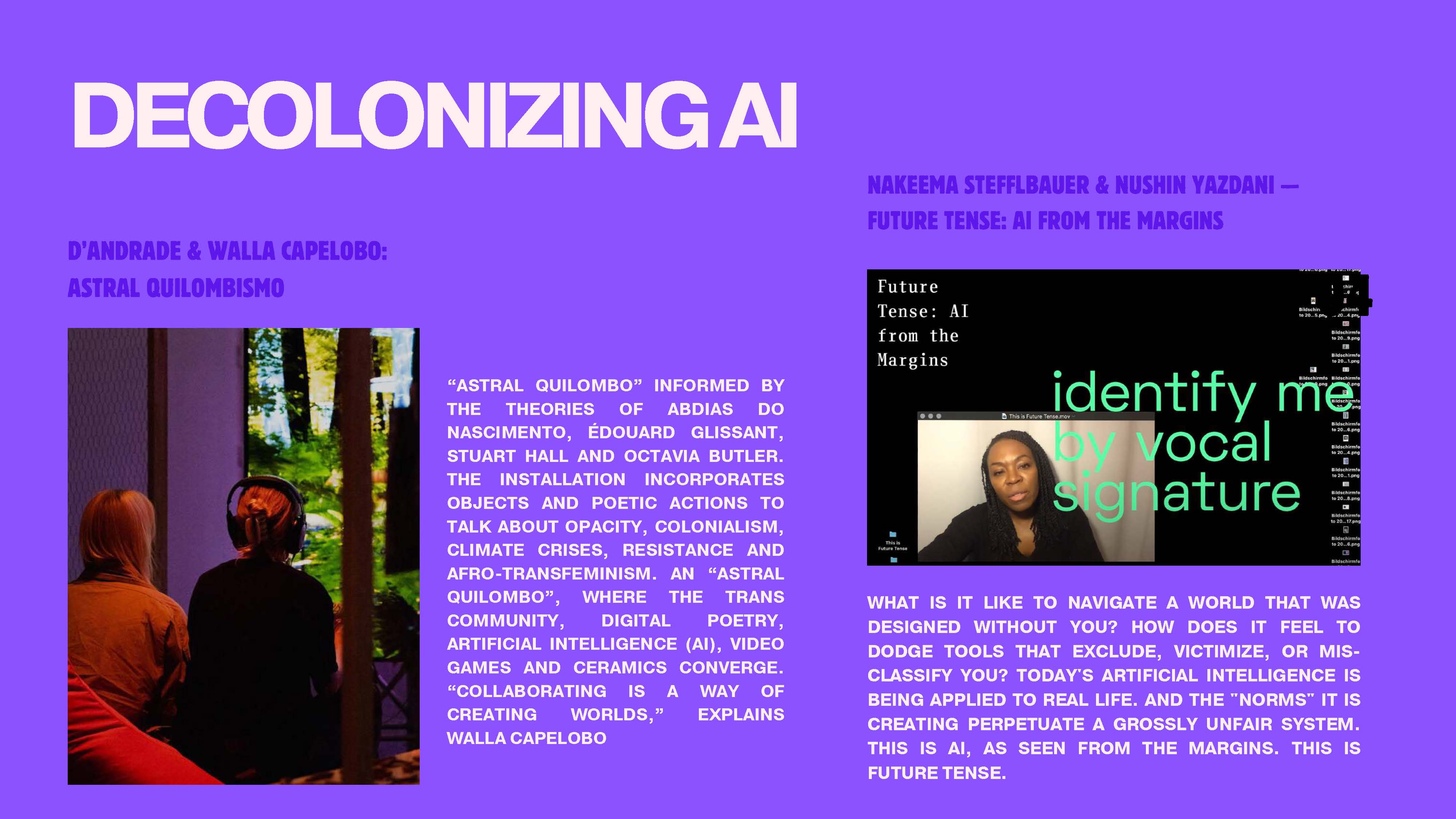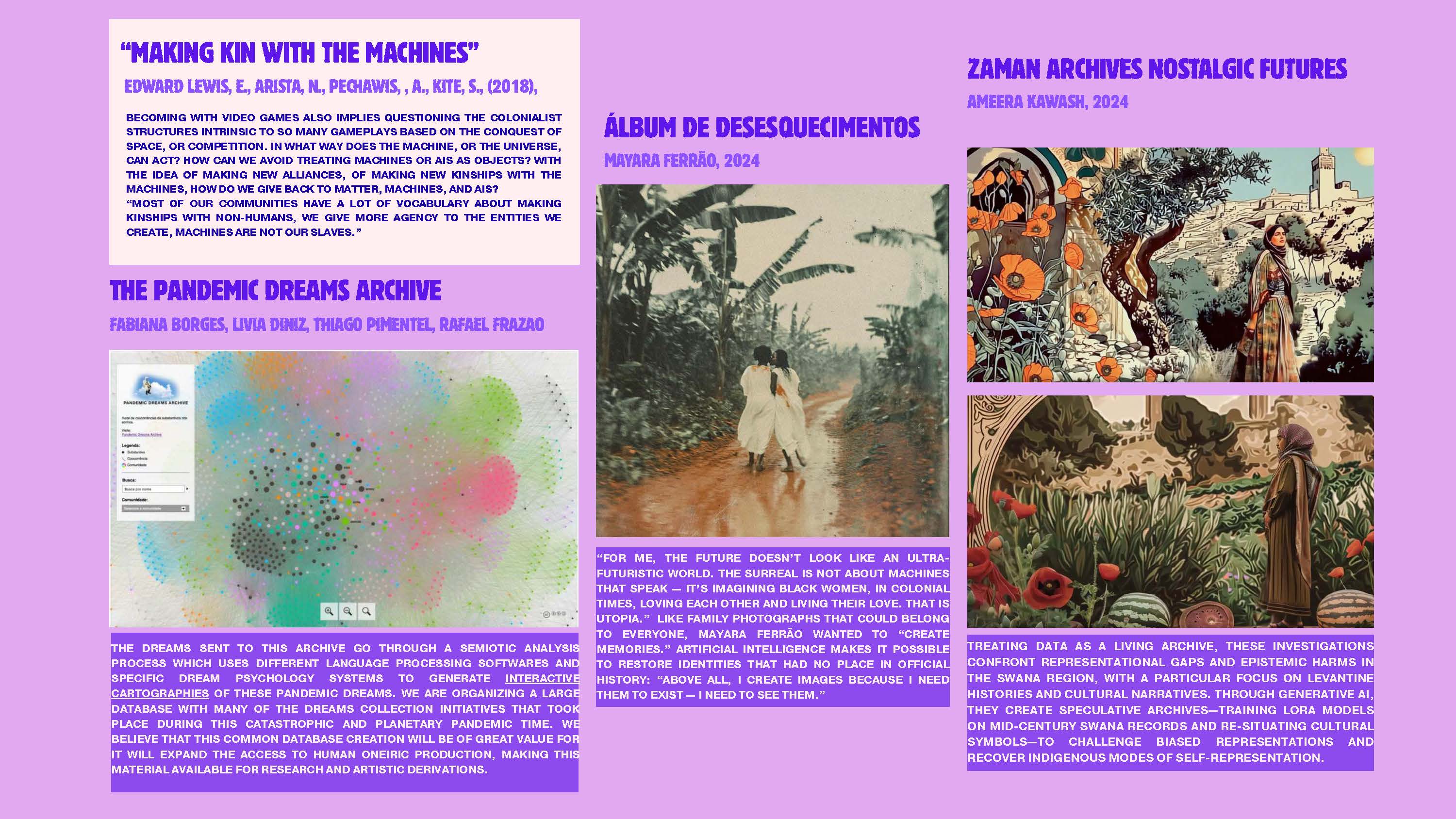Layered Realities: Machinima, Counter-Fictions, and Decolonial Ecologies

Isabelle Arvers
| Independent Researcher and Curator | France
Isabelle Arvers, Ph.D. Candidate, LARSyS,Interactive Technologies Institute (ITI), FBAUL, is a French artist and curator whose research
focuses on the interaction between art and video games. For the past twenty years, she has been investigating the artistic, ethical, and critical
implications of digital gaming. Her work explores the creative potential of hacking video games through machinima. As a curator, she focuses on video games as a new language for artists. In 2019, she embarked on an Art and Games World Tour in non-western countries to promote the notion of diversity of gender, sexuality, and geographic origin, focusing on queer, feminist, and decolonial practices. In 2020, Arvers started a Ph.D. on Art & Games decolonization and curated several shows and festivals around the world, including Jibambe na Tec (Nairobi, AF, 2020), Tecnofeminismo (Bogota, AF, 2019), Art Games World Tour exhibit (Buenos Aires, 2019), Interspecies Imaginaries (Overkill, 2019).
Palimpsest of Reality – Rethinking layered realities of AI, Art & Society invites us to explore how realities are constructed, overwritten, and reimagined. In my practice as an artist, curator, and researcher, I approach art, video games, and machinima as palimpsests: layered surfaces where ancestral knowledges, ecological imaginaries, and marginalized voices coexist with dominant narratives shaped by technology and colonial history.
Through machinima such as "I is an Other," "Heroic Makers vs Heroic Land," and "Liquid Forest," I explore how video games can be détourned to tell counter fictions and reclaim erased or silenced perspectives. As a curator of exhibitions such as Aux Futurs Ancestraux and initiator of collaborative projects like Beyond Green Games, I work with artists and communities across the Souths to re-inscribe suppressed cultural, queer, and feminist narratives into contemporary digital art.
In dialogue with artificial intelligence, these practices reveal both risks and potentials: AI reproduces biases embedded in datasets, perpetuating colonial erasures, but it also offers possibilities for co-creating new imaginaries—ecological, interspecies, and decolonial.
This talk proposes reading and rewriting the palimpsest of reality through the lenses of machinima, critical game practices, and collaborative creation. By layering voices, knowledges, and fictions, we can rethink how AI, art, and society intersect, and how alternative futures may emerge from these entangled realities.



